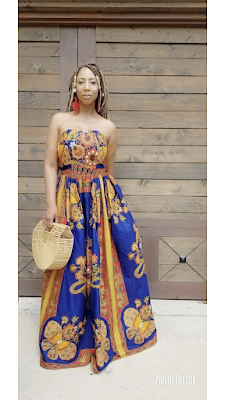The Hidden Meaning Of African Clothing
African clothing is much more than a fashion statement. Each color, pattern, and shape holds a significant meaning in African culture. Read below to know more about it.
1. Kente Cloth
Kente cloth is the typical African look. This vibrant fabric is woven into long 3- to 4-inch-wide panels. Several panels of kente cloth can be sewn together to make clothing for both men and women. The patterns created by the bright colored threads generally represent religious beliefs, common designs, and political narration. The different colors interpret different meanings. The color red symbolizes death, white expresses purity, green symbolizes fertility and blue expresses love.
2. Mudcloth
Mudcloth is an ancient art form that originated from Mali’s Bamana culture and involves weaving cloth and dyeing it with fermented mud. In traditional Malian culture, mudcloth is worn by hunters (men) that serves as a mask and a badge of status. While women wear this cloth after entering into adulthood and immediately after childbirth. The patterns of mudcloth signify historical events, crocodiles and other mythological concepts.
3. The significance of color
Some of the most used colors in African clothing are red, blue, green, white and gold. All these colors are very significant in African culture and symbolize different meanings. The color gold is extremely popular and it represents wealth and fertility. The color red represents tension and is viewed as the color of blood. The color blue symbolizes the sky and is a harmonious color that represents love and peace. The color green is medicinal and represents life and prosperity. The color white represents purity and spirituality.
Choosing an African garment can mean a lot more than just flattering your style. You can get a quality African print suit for ladies. You can truly experience Africa by choosing a color or fabric with a significant meaning. You can also get the best custom made African clothing.



Comments
Post a Comment